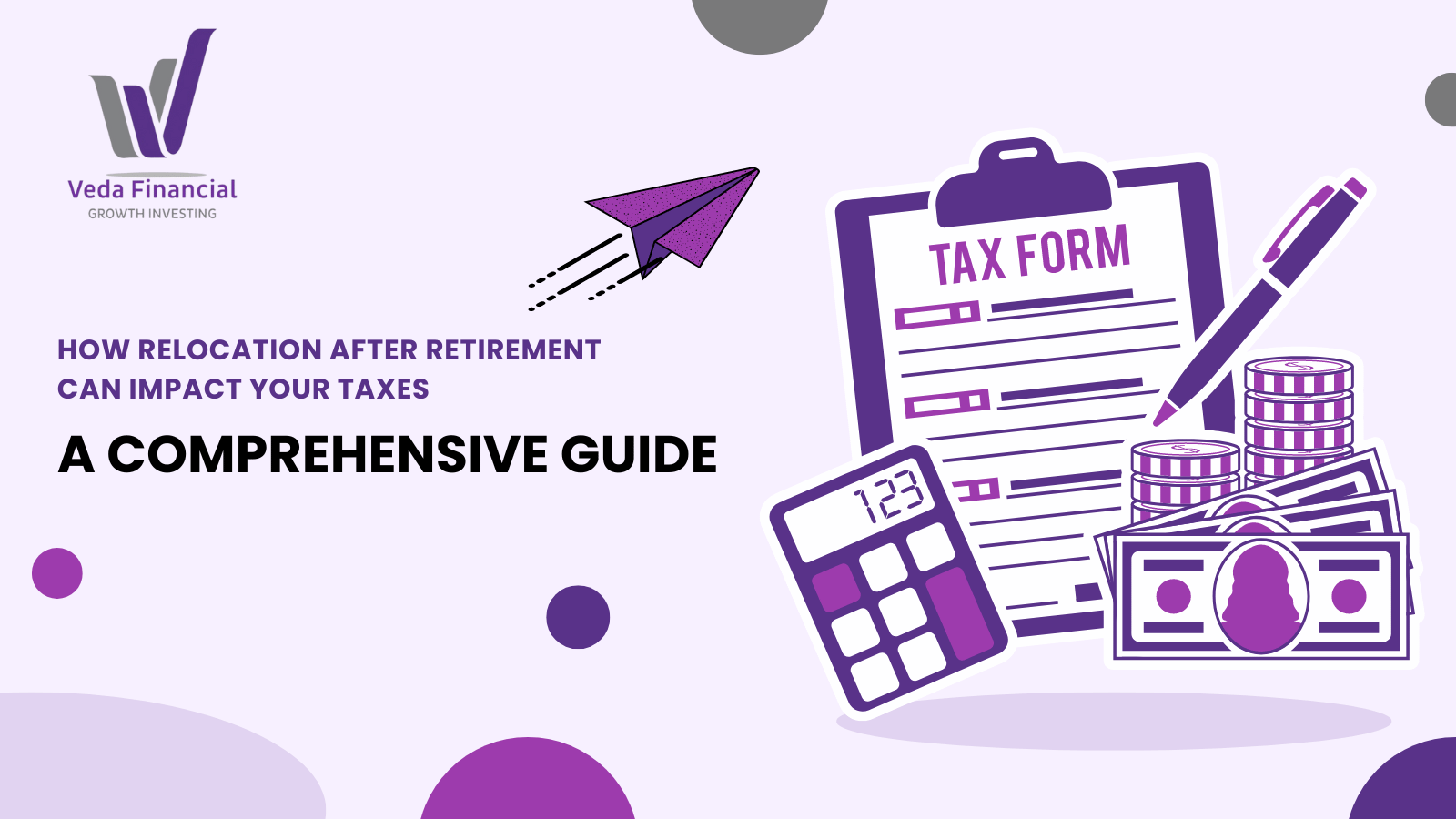For many individuals, retirement is not just the conclusion of their working years but the commencement of a new chapter with the freedom to choose where to live, unbounded by job locations. According to the Transamerica Center for Retirement Studies, more than a quarter of retirees consider relocation after retirement. While moving to a sunnier climate or closer to grandchildren might be appealing, retirees should consider how a move can affect their taxes.
This comprehensive guide is crafted to inform retirees and assist investment advisory firms in guiding their clients through relocation’s often complex tax implications.
Understanding State Tax Variations
The United States presents a patchwork of tax regulations, with each state imposing its own rules regarding income, property, sales tax, and estate and inheritance taxes. Relocating to a state with no income tax, such as Florida or Nevada, can seem attractive but may be offset by higher property or sales taxes.
Income Tax
Some states, including Alaska, Florida, Nevada, Texas, Washington, and Wyoming, do not tax individual income. Retirees should also be aware that some states exempt all or a portion of retirement income from taxation, such as pensions or Social Security benefits.
Property Tax
Often publicized as a factor in relocation, property taxes can vary drastically between different states and even within state lines. States such as Hawaii and Alabama offer attractive property tax rates, while New Jersey and Illinois are on the high end.
Sales Tax
Five states (Oregon, New Hampshire, Montana, Delaware, and Alaska) do not levy a state sales tax. However, localities may charge their own sales taxes in some of these states.
Estate and Inheritance Taxes
While federal estate taxes only kick in for estates worth over a certain threshold, 12 states and the District of Columbia levy an estate tax, and six have an inheritance tax. These can substantially impact the legacy left behind and should be considered when planning estate transitions.
Analyzing the Overall Tax Burden
It’s not enough to look at one tax in isolation. Comprehensive tax planning requires understanding the interplay between different types of taxes to ascertain the total tax burden a retiree might face in a new state.
Total Effective Tax Rate
One way to compare states is by calculating the total effective tax rate. This is the sum of all state and local taxes paid as a percentage of income. States with the lowest effective tax rates include Alaska, Wyoming, and South Dakota.
Cost of Living
Equally important is the general cost of living, which includes groceries, healthcare, utilities, and other insurance costs. A state with low taxes but high living costs might not be the best choice for retirees on a fixed budget.
Retirement Investments and Tax Strategy
Investment income in retirement can come from various sources, including IRAs, 401(k)s, pensions, and Social Security. Each state has its guidelines on taxing income streams, which can impact retirement investment strategy.
Tax-Deferred Accounts
Assets from tax-deferred accounts like traditional IRAs and 401(k) plans are taxed as ordinary income upon withdrawal. Therefore, relocating to a state with no income tax could be advantageous when taking distributions.
Capital Gains and Dividends
Nine states do not tax ordinary income but do tax dividends and interest income. These states may present a less favorable tax situation for retirees with substantial investment income.
The Role of a Financial Advisor
A financial advisor specializing in retirement planning can be invaluable in this decision-making process. They can provide detailed models showing the tax implications of relocating, recommend tax-efficient withdrawal strategies, and help predict how a move might influence a client’s retirement income stream.
Financial advisors can quantify tax implications by analyzing current tax laws, the retiree’s income and deductions, and anticipated lifestyle changes. This analysis might include future minimum distribution requirements from retirement accounts, healthcare expenses, and the potential need for long-term care.
Preparing for the Unexpected
Retirees should also be wary of non-tax considerations that might affect finances. For example, climate-related natural disasters could lead to higher insurance premiums, and economic volatility in a retiree’s chosen state could affect the costs of goods and services and impact local tax rates in the future.
The Comprehensive Approach to Relocation After Retirement
The goal of this guide is not to endorse or oppose any particular state as a retirement haven but rather to elucidate the multifaceted nature of tax planning as it relates to retirement relocation.
Quality retirement planning requires a 360-degree view, examining all aspects of a retiree’s financial posture:
- Projected income and budget
- The effective tax rate of potential destinations
- The volatility of tax laws and rates
- The cost of living
- Healthcare accessibility and expenses
- Proximity to family, amenities, and community resources
- Quality of life considerations
For registered investment advisory firms serving retirees pondering relocation, incorporating these facets into a comprehensive retirement plan is essential.
In Conclusion
Effective tax planning, intertwined with thoughtful consideration of life’s variables, can help ensure that a post-retirement move enhances a retiree’s financial and personal well-being rather than causing unforeseen burdens.
Ultimately, relocation in retirement is a highly personalized decision with innumerable variables. It should be made with caution, research, and professional advice to align with one’s overall retirement strategy, financial health, and life goals.
For questions regarding relocation after retirement and how it can impact your taxes, email us or visit our website at Veda Financial.






